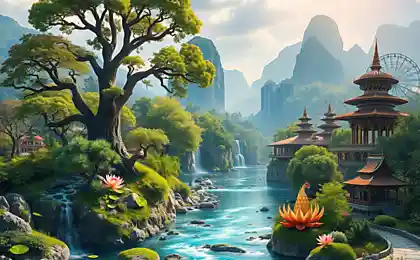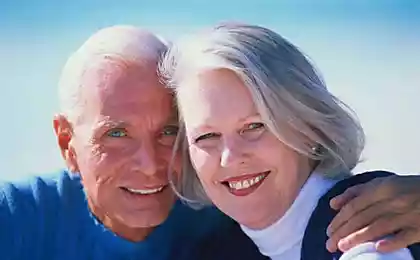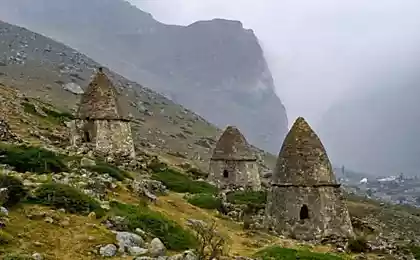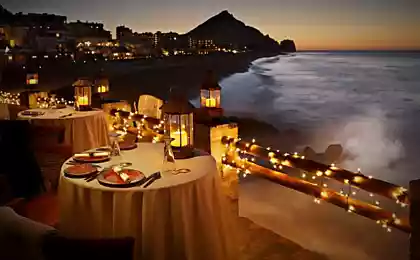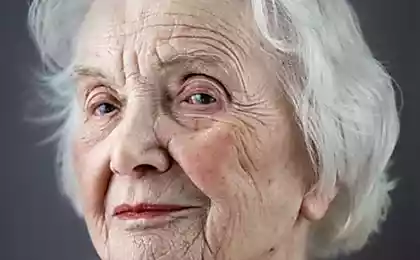285
9 rules from long-lived Blue Zones
4 blue zones? 5? No, 6!
Before I get to the nine rules of longevity, I want to tell you. about the blue zones themselves - habitats of centenarians of this planet.
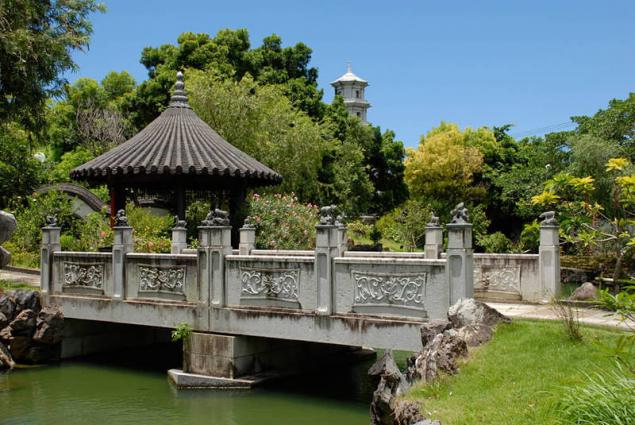
Zone 1 is Okinawa.
The homeland of karate, the island of spirits and the residence of the most non-Japanese Japanese. Being quite isolated from the Japanese islands, Okinawa was able to preserve most of the ancient traditions for hundreds of years, and now actively resists the arrival of modern “deities” – Coca-Cola and McDonalds.
159178
Zone 2 is Sardinia.
One of the most fashionable resort areas in the world with numerous villas for millionaires and marinas for yachts is not associated with health and longevity. But high in the mountains, the spirit of a real, patriarchal Sardinia has been preserved, whose inhabitants, engaged in traditional livestock and agriculture, do not come into contact with the “charms” of the Western world – and, without strain, live up to a hundred years.
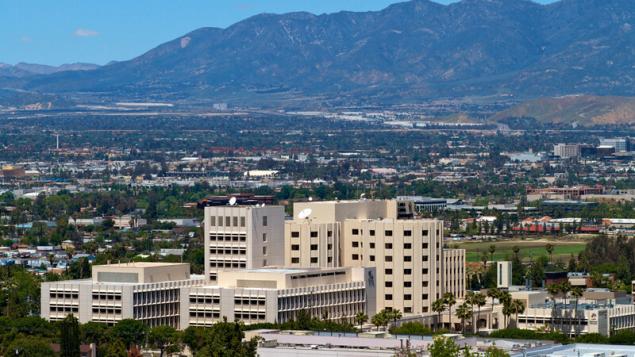
Zone 3 – Loma Linda, California.
Loma Linda is only a hundred kilometers from smoky Los Angeles. His secret is the Adventists and their faith, which categorically does not support bad habits such as smoking, alcohol and eating unhealthy foods. Loma Linda’s amazing conservatism and health scrupulousness have allowed them to turn their city into an oasis in one of the two centers of business and cultural life in the United States.
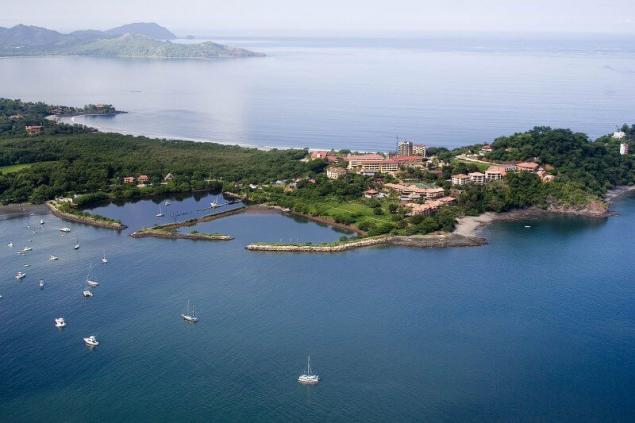
Zone 4 is the Nicoya Peninsula in Costa Rica.
Nikoya is separated from the rest of the country by difficult mountains and jungles. At first glance, it’s the small Latin American town we’ve seen in Generals of Sand Quarries or Desperate or read in Marquez’s 100 Years of Solitude. But the isolation, local traditions and principles of nutrition that exist in Nicoya, allowed this place to become one of the “Blue Zones” of centenarians.
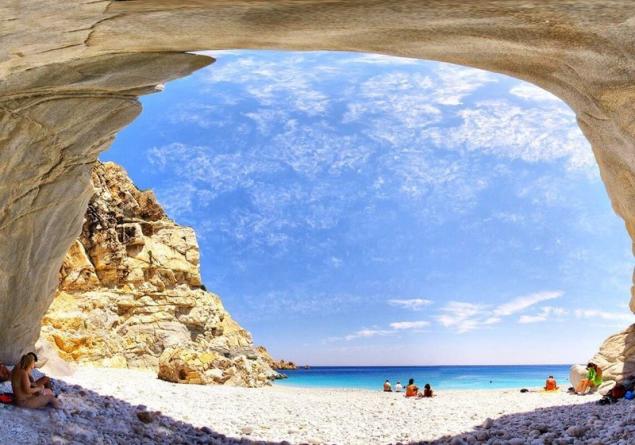
Zone 5 is the Greek island of Ikaria.
Unfortunately, Ikaria was listed as a blue zone not so long ago, and the study of the original book does not affect her.
Zone 6 - ...
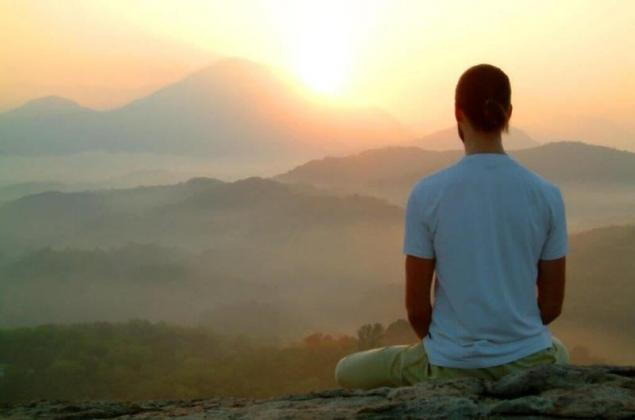
Your personal blue zone!
In the second part of the book, Buettner summarizes the results of the study and brings all the features, traditions and customs of the “blue zones” into a single list.The Nine Rules of Longevity. The book gives detailed instructions on each rule, and here I will give them only briefly.
1. Be active, but don’t dwell on it.None of the centenarians lead a sedentary lifestyle - they constantly move. Many people do what they've done all their lives, they work in the garden, graze cattle, do crafts. They walk or even cycle to the market for vegetables or visit relatives and neighbors. No heroism, records or exploits, they engage in low-intensity physical activity, but every day for many years.
2. Cut calories.In Okinawa, centenarians follow the principle of “hara-hachi-bu”, not eating full and always remaining a little hungry. They catch the subtle difference between “not to be hungry” and “to eat” and never overeat, and do not raise food in a cult, as we used to do.
3. Plants are everything.The vast majority of centenarians in the study never tried processed foods, sugary drinks or pickled snacks. Their daily food is small portions of simple plant foods that they grow in their garden. This is not to say that they are giving up meat (meat is part of the diet of blue zone residents), but rather that they simply do not have the opportunity or need to eat meat daily.
4. Drink red wine.A glass of red wine a day is more beneficial than unhealthy, and residents of three of the four zones (except abstaining Adventists) do not refuse it. Red wine reduces appetite, has a positive effect on the heart and blood vessels, relieves stress and reduces the risk of chronic inflammation. This is evidenced by both studies of the diet of residents of the “blue zones” and other scientific studies. In this case, it is important to be consistent and moderate - red wine has a fine line, crossing which you will feel all the "charms" of the toxic effects of alcohol on the liver and other organs.

5. Find purpose in life.All centenarians have a purpose that guides and inspires them through life. In Okinawa it is called “ikigai”, in Nikoi – plan de vida, and in Russian it is the reason why you want to wake up in the morning. People who have a clear understanding of what they exist for live much longer and have a clear mindset. It is not necessarily something important, sometimes in the role of "ikigai" is a strong desire to see the adults of their children and grandchildren or daily occupation of the craft. But it is, and it gives life meaning.
6. Be sure to relieve stress.There is a lot of stress in cities – remember how long you haven’t been nervous or worried about anything. There are also problems in small settlements. Long-lived people in any situation radiate calm and serenity. They do not hurry anywhere, they sleep soundly, they know how to enjoy small daily joys and do not give in to difficulties. Even their lives are too short to allow themselves to run headlong ahead to their supposed success and prosperity.
7. Find faith.All centenarians of the “blue zones” adhere to certain beliefs and belong to local spiritual communities. You can say that their God helps them for this, but most likely their secret is that faith helps them remain optimistic and make healthier and better choices in a given situation. And, of course, belonging to a particular religion allows you to get rid of the stresses of everyday life and transfer some of your doubts and worries to the mercy of some higher power.
8. Family comes first.Li Jing-young, who was mentioned at the beginning of the article, is rightly considered a hermit, but forgets that he outlived 23 of his wives and left more than 180 descendants. Family ties and support may have the greatest impact on the health of centenarians. They are never alone, they are calm for their old age, and their children, grandchildren and great-grandchildren do not let them get bored and bring great joy into their lives.
9. Surround yourself with people who share the values of the blue zones.Family and faith bring people together, but cultural traditions and simple human communication bring them together no less. It is much easier to develop healthy habits, if they adhere to all around. Social community plays a huge role in the life of people of the “blue zones”. Not a day goes by that they don’t get together – Okinawans have moai, support groups, Sardinians gather in cafes in the evenings, and in Loma Linda everything is done together. See who in your community shares your values and aspirations, and spend as much time with them as possible.
Also interesting: Protium water - the secret of centenarians
Food centenarians: the best recipes of dishes from Jerusalem artichoke
Verdict:One of the few 10/10 books on my list and one of the best health books I've ever read. Definitely for reading and application. published
Author: Mikhail Solovyov
Source: folkextreme.ru/2015/07/blue-zones/
Before I get to the nine rules of longevity, I want to tell you. about the blue zones themselves - habitats of centenarians of this planet.

Zone 1 is Okinawa.
The homeland of karate, the island of spirits and the residence of the most non-Japanese Japanese. Being quite isolated from the Japanese islands, Okinawa was able to preserve most of the ancient traditions for hundreds of years, and now actively resists the arrival of modern “deities” – Coca-Cola and McDonalds.
159178
Zone 2 is Sardinia.
One of the most fashionable resort areas in the world with numerous villas for millionaires and marinas for yachts is not associated with health and longevity. But high in the mountains, the spirit of a real, patriarchal Sardinia has been preserved, whose inhabitants, engaged in traditional livestock and agriculture, do not come into contact with the “charms” of the Western world – and, without strain, live up to a hundred years.

Zone 3 – Loma Linda, California.
Loma Linda is only a hundred kilometers from smoky Los Angeles. His secret is the Adventists and their faith, which categorically does not support bad habits such as smoking, alcohol and eating unhealthy foods. Loma Linda’s amazing conservatism and health scrupulousness have allowed them to turn their city into an oasis in one of the two centers of business and cultural life in the United States.

Zone 4 is the Nicoya Peninsula in Costa Rica.
Nikoya is separated from the rest of the country by difficult mountains and jungles. At first glance, it’s the small Latin American town we’ve seen in Generals of Sand Quarries or Desperate or read in Marquez’s 100 Years of Solitude. But the isolation, local traditions and principles of nutrition that exist in Nicoya, allowed this place to become one of the “Blue Zones” of centenarians.

Zone 5 is the Greek island of Ikaria.
Unfortunately, Ikaria was listed as a blue zone not so long ago, and the study of the original book does not affect her.
Zone 6 - ...

Your personal blue zone!
In the second part of the book, Buettner summarizes the results of the study and brings all the features, traditions and customs of the “blue zones” into a single list.The Nine Rules of Longevity. The book gives detailed instructions on each rule, and here I will give them only briefly.
1. Be active, but don’t dwell on it.None of the centenarians lead a sedentary lifestyle - they constantly move. Many people do what they've done all their lives, they work in the garden, graze cattle, do crafts. They walk or even cycle to the market for vegetables or visit relatives and neighbors. No heroism, records or exploits, they engage in low-intensity physical activity, but every day for many years.
2. Cut calories.In Okinawa, centenarians follow the principle of “hara-hachi-bu”, not eating full and always remaining a little hungry. They catch the subtle difference between “not to be hungry” and “to eat” and never overeat, and do not raise food in a cult, as we used to do.
3. Plants are everything.The vast majority of centenarians in the study never tried processed foods, sugary drinks or pickled snacks. Their daily food is small portions of simple plant foods that they grow in their garden. This is not to say that they are giving up meat (meat is part of the diet of blue zone residents), but rather that they simply do not have the opportunity or need to eat meat daily.
4. Drink red wine.A glass of red wine a day is more beneficial than unhealthy, and residents of three of the four zones (except abstaining Adventists) do not refuse it. Red wine reduces appetite, has a positive effect on the heart and blood vessels, relieves stress and reduces the risk of chronic inflammation. This is evidenced by both studies of the diet of residents of the “blue zones” and other scientific studies. In this case, it is important to be consistent and moderate - red wine has a fine line, crossing which you will feel all the "charms" of the toxic effects of alcohol on the liver and other organs.

5. Find purpose in life.All centenarians have a purpose that guides and inspires them through life. In Okinawa it is called “ikigai”, in Nikoi – plan de vida, and in Russian it is the reason why you want to wake up in the morning. People who have a clear understanding of what they exist for live much longer and have a clear mindset. It is not necessarily something important, sometimes in the role of "ikigai" is a strong desire to see the adults of their children and grandchildren or daily occupation of the craft. But it is, and it gives life meaning.
6. Be sure to relieve stress.There is a lot of stress in cities – remember how long you haven’t been nervous or worried about anything. There are also problems in small settlements. Long-lived people in any situation radiate calm and serenity. They do not hurry anywhere, they sleep soundly, they know how to enjoy small daily joys and do not give in to difficulties. Even their lives are too short to allow themselves to run headlong ahead to their supposed success and prosperity.
7. Find faith.All centenarians of the “blue zones” adhere to certain beliefs and belong to local spiritual communities. You can say that their God helps them for this, but most likely their secret is that faith helps them remain optimistic and make healthier and better choices in a given situation. And, of course, belonging to a particular religion allows you to get rid of the stresses of everyday life and transfer some of your doubts and worries to the mercy of some higher power.
8. Family comes first.Li Jing-young, who was mentioned at the beginning of the article, is rightly considered a hermit, but forgets that he outlived 23 of his wives and left more than 180 descendants. Family ties and support may have the greatest impact on the health of centenarians. They are never alone, they are calm for their old age, and their children, grandchildren and great-grandchildren do not let them get bored and bring great joy into their lives.
9. Surround yourself with people who share the values of the blue zones.Family and faith bring people together, but cultural traditions and simple human communication bring them together no less. It is much easier to develop healthy habits, if they adhere to all around. Social community plays a huge role in the life of people of the “blue zones”. Not a day goes by that they don’t get together – Okinawans have moai, support groups, Sardinians gather in cafes in the evenings, and in Loma Linda everything is done together. See who in your community shares your values and aspirations, and spend as much time with them as possible.
Also interesting: Protium water - the secret of centenarians
Food centenarians: the best recipes of dishes from Jerusalem artichoke
Verdict:One of the few 10/10 books on my list and one of the best health books I've ever read. Definitely for reading and application. published
Author: Mikhail Solovyov
Source: folkextreme.ru/2015/07/blue-zones/
